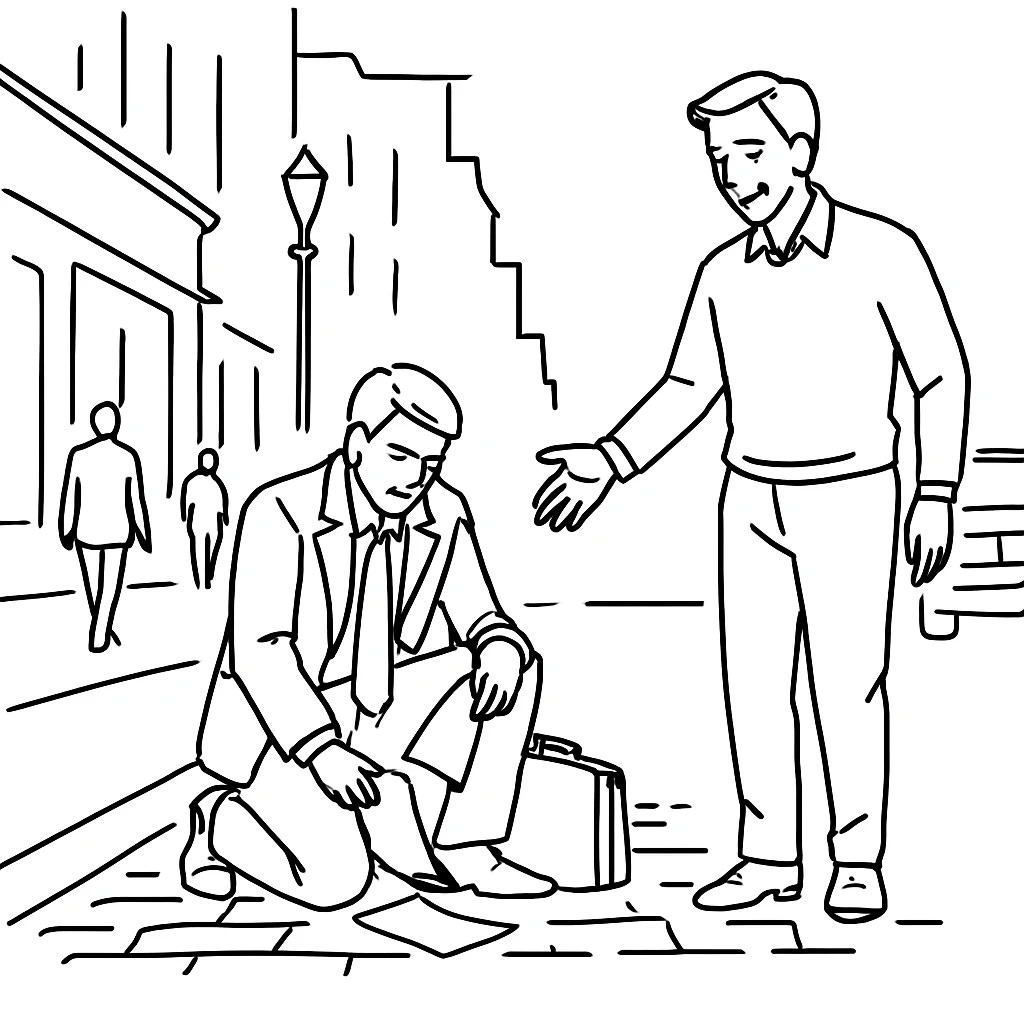2-22: Mercy vs. Ego
Showing Compassion in Everyday Encounters
I had to Uber to work this morning. When I first called the ride it said six minutes to arrive, which already felt a bit longer than usual. Once it connected me with a driver, he immediately messaged to say, “my AC is not working, is that ok?” I obliged and said sure. A few minutes passed and his car had not moved on the map. Despite it being 7:45 in the morning, I realized he was probably stuck at the train tracks. I messaged, “train?” and he replied, “yeah unfortunately.”
I was not thrilled to have pulled the Uber short straw. The easy response would have been to pile on with a passive comment, or better yet, cancel the trip entirely and request another driver. For a moment I considered it, but I realized that canceling would be kicking him while he was already down and gambling that a closer driver (with working AC) might accept my request.
It’s strange how quickly ego creeps in when someone else stumbles. We like the chance to feel competent or superior even if that means at the expense of someone struggling. A small part of us enjoys the moment of superiority, even if no one is watching. That instinct is rarely worth following. Adding so much as a pebble to another person’s struggle does not make our own lighter.
Compassion, on the other hand, lightens the load and interrupts the cycle. In my Uber, I simply told the driver that no AC was fine and not to worry. It was a somewhat-pleasant and not-too-humid morning, and despite his reggaeton blaring, I enjoyed having the windows down. I don’t think he would have been fazed if I quipped at his lack of AC or tardiness, nor did he seem particularly grateful of my understanding. During my trip with him, nothing dramatic changed in his day, but it particularly did not get worse because of me.
This small choice reminded me of the wisdom found in Proverbs: “Do not gloat when your enemy falls; when they stumble, do not let your heart rejoice.” If that is true even for our enemies, how much more should it guide the way we treat strangers just trying to make it through the day.
Most of us will never have a grand stage to prove our character. Instead, we are handed small tests of our patience and compassion. Upon every interaction we tend to a choice. We can subconsciously meander into tripping over someone while they’re down, or acknowledge them, stop and offer them a hand.
Thinking back to that ride I realize how easily I could have woken up and chosen evil. I could have said “the world is out to get me today; let me get the world.” Instead, I found the solace to pause. I found compassion in seeing how easily someone else’s struggles could have been my own. While my driver that day has long forgotten me, his series of unfortunate events led to uncovering a quiet reminder of mercy overcoming ego. It also left me with a question I have carried since: If everyone does not kick a man while he is down, is he ever really down?


